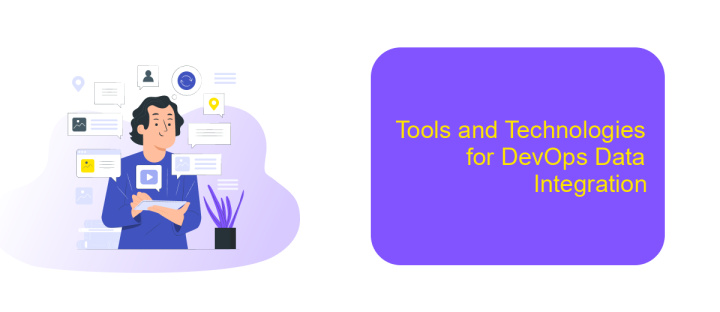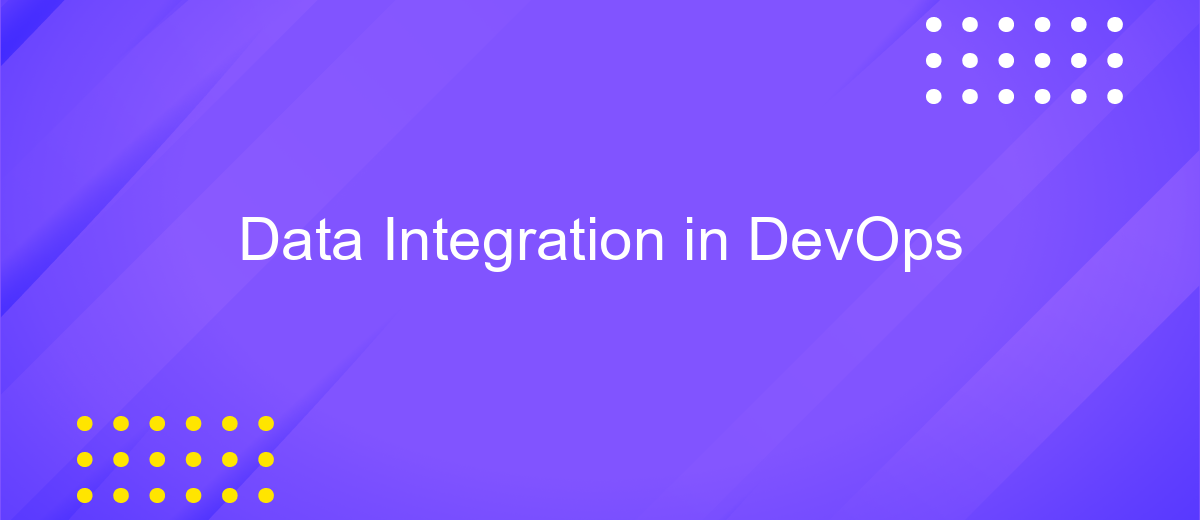Data Integration in DevOps
In the rapidly evolving landscape of software development, DevOps has emerged as a crucial methodology for enhancing collaboration and efficiency. Central to its success is data integration, which ensures seamless communication and data flow across diverse systems and teams. This article explores the significance of data integration in DevOps, highlighting its role in optimizing processes, improving decision-making, and driving innovation in today’s competitive technology environment.
Introduction to Data Integration and DevOps
Data integration and DevOps are increasingly intertwined in modern software development, as organizations strive to enhance productivity and streamline workflows. Data integration involves combining data from various sources to provide a unified view, facilitating better decision-making and operational efficiency. DevOps, on the other hand, is a set of practices that automates and integrates the processes of software development and IT operations, aiming to shorten the development lifecycle while delivering high-quality software.
- Seamless Collaboration: Integrating data into DevOps fosters seamless collaboration between development and operations teams.
- Enhanced Visibility: Unified data views provide stakeholders with enhanced visibility into project progress and system performance.
- Improved Efficiency: Automation of data processes reduces manual intervention, improving overall efficiency.
The synergy between data integration and DevOps enables organizations to harness the full potential of their data assets, driving innovation and competitive advantage. By leveraging integrated data, teams can identify trends, optimize processes, and respond swiftly to market changes. As a result, businesses are better positioned to meet customer demands and achieve strategic goals, making data integration a crucial component of the DevOps landscape.
Data Integration Challenges in a DevOps Environment

Integrating data within a DevOps environment poses several challenges, primarily due to the dynamic and fast-paced nature of DevOps practices. One significant challenge is ensuring seamless data flow between various tools and platforms used in the development and operations lifecycle. This often involves dealing with disparate data formats, protocols, and legacy systems that may not readily communicate with modern applications. Additionally, maintaining data consistency and accuracy across these systems is crucial, as any discrepancies can lead to faulty deployments and operational inefficiencies.
Another challenge is the need for real-time data integration to support continuous delivery and deployment. In this context, tools like ApiX-Drive can be instrumental, as they enable automated data synchronization between different applications without the need for complex coding. ApiX-Drive facilitates the configuration of integrations quickly, allowing DevOps teams to focus on core activities rather than spending excessive time on data integration issues. Furthermore, ensuring data security and compliance with regulations such as GDPR adds an additional layer of complexity, requiring robust encryption and access control measures.
Best Practices for Data Integration in DevOps

Integrating data effectively within a DevOps framework requires a strategic approach to ensure seamless operations and optimal performance. The goal is to facilitate smooth data flow between development and operations teams, enhancing collaboration and efficiency. By adopting best practices, organizations can overcome common challenges associated with data integration in DevOps environments.
- Automate Data Pipelines: Implement automation tools to streamline data movement and reduce manual intervention, minimizing errors and speeding up processes.
- Ensure Data Consistency: Use consistent data formats and structures across systems to prevent discrepancies and maintain data integrity.
- Implement Robust Security Measures: Protect sensitive data through encryption and access controls, ensuring compliance with industry regulations.
- Monitor and Optimize Performance: Regularly assess data integration processes to identify bottlenecks and optimize for better performance.
- Foster Cross-Functional Collaboration: Encourage communication and collaboration between development, operations, and data teams to align objectives and streamline workflows.
By following these best practices, organizations can enhance their DevOps initiatives, ensuring that data integration supports agile development and operational efficiency. This approach not only improves data quality and accessibility but also fosters a culture of continuous improvement and innovation within the organization.
Tools and Technologies for DevOps Data Integration

In the realm of DevOps, data integration is pivotal for ensuring seamless operations and efficient workflows. It involves combining data from various sources to provide a unified view, enhancing decision-making processes and operational efficiency. With the increasing complexity of IT environments, selecting the right tools and technologies for data integration becomes crucial.
Several tools are designed to facilitate data integration within DevOps pipelines, each offering unique features tailored to specific needs. These tools help in automating data flows, ensuring data consistency, and providing real-time insights, which are essential for agile and responsive DevOps practices.
- Apache Kafka: A distributed streaming platform that handles real-time data feeds efficiently.
- Talend: Offers a comprehensive suite for data integration, data quality, and big data.
- Informatica: A robust tool for data integration, providing cloud-based and on-premises solutions.
- Jenkins: Integrates with various plugins to support continuous integration and data automation tasks.
Choosing the right tools depends on the specific requirements of your DevOps environment, including scalability, data volume, and integration complexity. By leveraging these technologies, organizations can streamline their DevOps processes, enhancing productivity and fostering innovation.
Future Trends in DevOps Data Integration
As DevOps continues to evolve, data integration is set to play a pivotal role in shaping its future. The growing complexity of applications and the need for real-time data processing are driving the demand for seamless integration solutions. Organizations are increasingly adopting AI and machine learning to automate data integration processes, enhancing efficiency and reducing human error. This trend is likely to continue as businesses seek to streamline their operations and improve decision-making capabilities.
Moreover, the rise of low-code and no-code integration platforms, such as ApiX-Drive, is democratizing data integration by making it accessible to non-technical users. These platforms enable teams to configure integrations quickly and efficiently without extensive coding knowledge. As the DevOps landscape becomes more intricate, the ability to easily integrate diverse data sources will be crucial. Consequently, investing in flexible and scalable integration solutions will be essential for organizations aiming to stay competitive in the rapidly changing tech environment.
FAQ
What is data integration in DevOps, and why is it important?
How does data integration support continuous delivery in DevOps?
What are some common challenges in data integration for DevOps?
How can automation tools assist in data integration within a DevOps environment?
What best practices should be followed for effective data integration in DevOps?
Do you want to achieve your goals in business, career and life faster and better? Do it with ApiX-Drive – a tool that will remove a significant part of the routine from workflows and free up additional time to achieve your goals. Test the capabilities of Apix-Drive for free – see for yourself the effectiveness of the tool.

